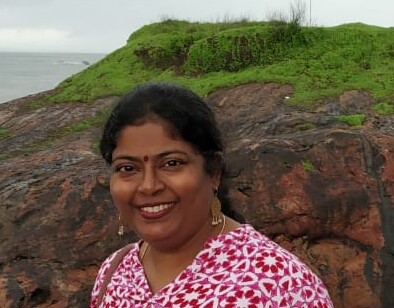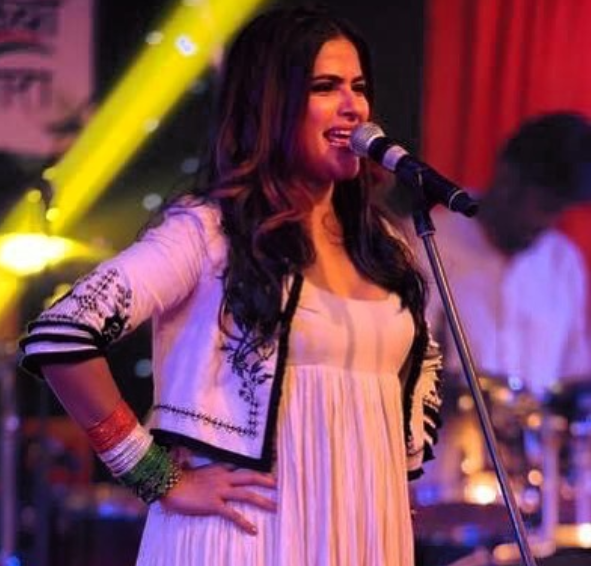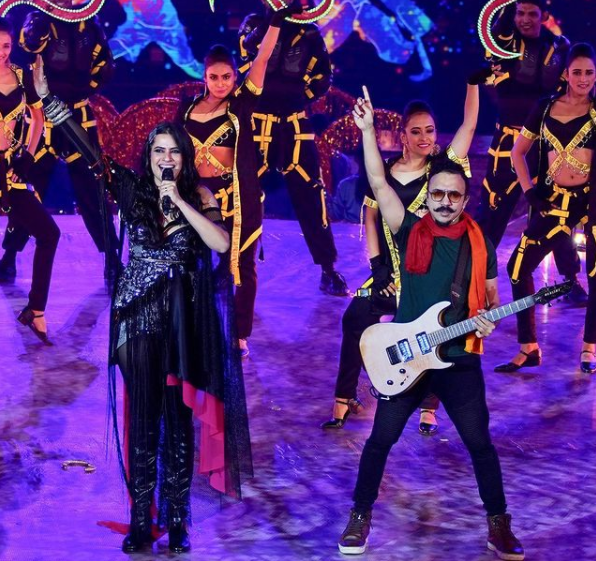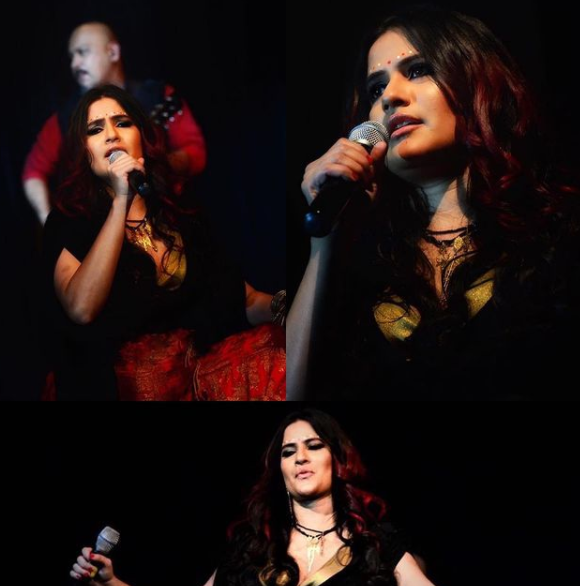They wanted me to be Tina Turner. I liked Teejan Bai: Sona Mohapatra
In The Slow Cafe with Neelesh Misra, the feisty singer speaks about her early music influences, her unique voice and how she’s grown to love her own company.

Sona Mohapatra is her own first audience. She sings for herself, and if you need proof of that, browse through her YouTube channel to see the utter joy on her face, a wee bit of surprise when she hits the high notes, and the sheer delight of being able to create music.
When such a person is part of The Slow Cafe with Neelesh Misra, what follows is a conversation that also doubles up as an impromptu music concert.
Mohapatra began with a folk song from Uttar Pradesh and visited Bengal’s Baul tradition, followed that up with a Sambalpuri song, then some film songs before concluding with Rupaiya, written by Swanand Kirkire and composed by Mohapatra’s husband Ram Sampath, and performed in Satyameva Jayate, the TV show headlined by Aamir Khan. Significantly, Rupaiya is about the worth of a girl and how she’s priceless.
A fitting song for a girl who was once asked to stop singing because otherwise the donkeys would come calling. But Mohapatra loved how she sounded and while everyone wanted her to sing Tina Turner — because she had a husky voice they thought suited English songs better — she wanted to be Teejan Bai, the lovely Pandavani exponent from Chhattisgarh. “She has such stage presence, is a picture of empowerment and her body language is fabulous. She is a rockstar,” Mohapatra said.

Born in Visakhapatnam into a service family (her father was in the Navy), Mohapatra and her two sisters were used to moving cities every couple of years. She even lived in Nigeria for five years. And while she grew up amid kids who took a shine to English music, Mohapatra resolutely stayed desi, sticking out “like a sore thumb”. Her sibling Mona was the one with the ‘sweet’ voice and she would be summoned to sing ghazals, geets and bhajans while Mohapatra was ordered to sing Western.
She recalled attending a concert by the late doyen Girija Devi in Mumbai five years ago. “When she sings, your molecules change. She’s a storyteller and carries the heartland in her music.”
Because she has an “unconventional” voice, Mohapatra pushed herself to discover genres that she could make her own. She loves thumris and Hindi film music. “You need our songs to dance to,” she laughs.
The COVID19 lockdown reintroduced Mohapatra to herself. For three months, she spent time in her own company and says she learnt a lot. She heard podcasts, absorbed thoughts… she learnt to see the world in all its shades.
Her Africa connection comes to the fore when Mohapatra is performing abroad. “I always prefer African and Latino musicians. They have an inner groove, an inner rhythm that’s infectious. They can get everyone to dance.”

Mohapatra is an avid learner, and one of the more prominent faces of the MeToo movement in India. She said she learnt about the struggle of sexual minorities when a person transitioning into a man was part of her band. “We shared a room, and I asked questions to understand him better. I grew up at a time when sexuality was not openly discussed. We need empathy, and that’s not negotiable,” she said.
In today’s ‘cancel culture’, Mohapatra stands out. “I will argue with you, I may not agree with you, but I will not cancel you,” she stated.
Life was not easy when Mohapatra hit the concert trail with her band. “People were used to boybands, and had the image of boys with a guitar. For girls, it would always be dancers. I told event organisers I led a full band. It took some convincing to get them to understand,” she said.
Misra then spoke about the idea of going to Mumbai to make it “big”. He knows, because he has walked the path and now lives in Lucknow, far away from the madding crowd, yet doing creatively fulfilling work. Mohapatra agreed. “We bandmates are thinking about decentralising. I am beginning to question how much creativity anyone is able to retain in Mumbai,” she said.

Misra spoke about the umbilical cord between success and Mumbai and how some people leave behind everything to get there. “Yes, many people have got a life in Mumbai, but many more have not been able to make it,” he said.
The conversation soon drifted to Mohapatra’s unique voice and the danger of it getting stereotyped, like possibly what happened with Ila Arun. “Have I touched a raw nerve?” he asked. “No no. When I started doing the rounds with a demo, I had recorded a Shubha Mudgal number and a composition of my own. I realised that people expected me to parrot three or four hit songs in my demo. But I genuinely saw myself as an artiste. I made certain choices. I did not want to get pigeon-holed. I have nothing against item numbers, I will not make a moral judgement, but I wanted to sing other things too.”
This was a time when Mohapatra was holding a day job and seeking singing opportunities on the side. “I was very clear I would create my own album that would be a showcase of my musical choices.” Eventually, in 2007, Sony Music released her debut album Sona. “Abhi Nahi Aana Sajna” was inspired by Parvathy Baul’s stirring music. Many felt it was slow, but it’s still popular. I knew the journey would take time, but I’d reach my destination. I decided to stick to what my heart told me.”
Mohapatra is known for being very forthright. During lockdown, when she was asked to sing on some shows, she refused. “Once, they did not have the time for any singer. And now they wanted me to sing, for free. I said I could speak a lot, but my music is not free.”
The conversation veered back to Ila Arun. “I loved how she wore her sensuality on her sleeve. She was unabashed and broke so many barriers,” she told Misra. But the activist in Mohapatra also questioned why when we speak of civilisational pride, we don’t consider folk artistes. “What is being done for them? Where is the help? Where are the policies? They won’t ask for help, and their stories are tragic,” she pointed out.
Mohapatra’s voice can soar, and she manages that despite her asthma. “I have to keep working on my lung power. During the lockdown, I spent hours every day just singing the Saraswati and Vibhaas raags. I would sing just five notes for hours. It’s a blessing to be able to do that. It’s joy,” said Mohapatra.
A documentary Shut Up Sona on a woman’s fight for equal space, directed by Deepti Gupta is doing the festival circuit now. “That way, I am fascinated by Mirabai. What a rockstar she is. She was ostracised for her music, and she came back to claim her rightful place,” she said.
Mohapatra has had to fight her battles too and still does, but when she sings in her voice, interesting blemishes and all, she comes across as real. That’s a quality others struggle for years to achieve.

